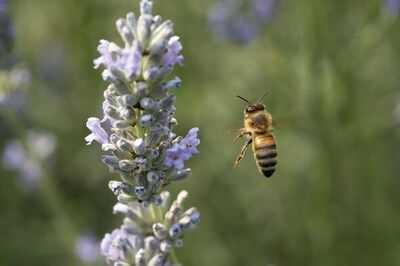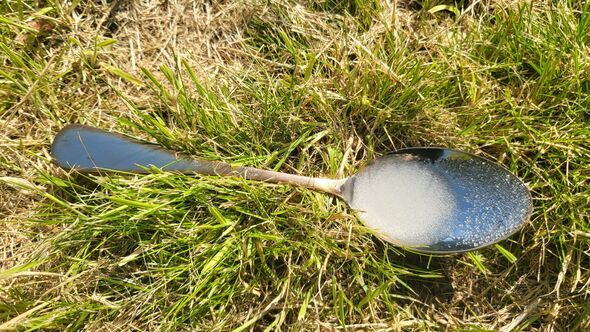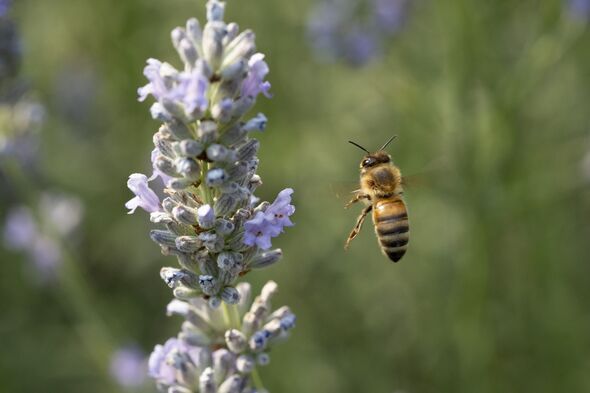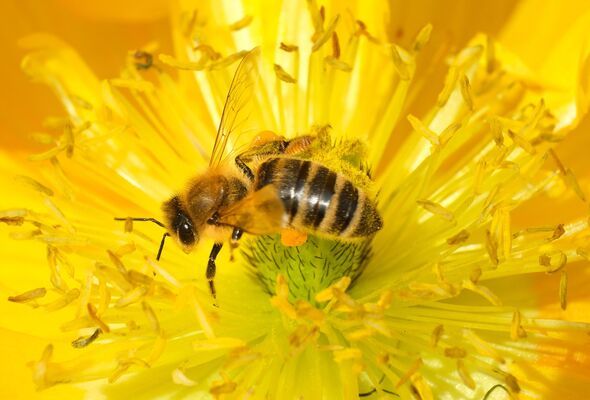

Gardeners are being urged to use a spoonful of sugar water in their gardens this month as the hot weather returns again.
Hot sunny weather had disappeared again in the past week, but in the coming days is set to return for another heatwave by the end of next week.
The Met Office has forecast temperatures will hit 26C in London on Tuesday, rising to 27C on Wednesday and 28C on Thursday. The BBC's forecast, which looks further ahead than the Met Office's, has temperatures at 32C by July 12, with a heatwave potentially lasting at least nine days.
But not everything in your garden is happy to see constant sunshine and in fact, bees and bumblebees can often end up exhausted and in dire need of a boost - or they can die.
As bee and bumblebee numbers are so heavily under threat thanks to habitat loss, bug sprays and climate change, everyone with a garden is being pushed to do what they can to help.

And with bees finally a common sight in our gardens in the sunshine, it usually isn't long until someone spots a flagging, ailing bee fighting death.
In this situation, gardeners are being asked to step in and, as a last resort, use a sugar water solution to bring tired bees back to life.
Advice from BBC TV show Gardeners' World says: "It's not uncommon to find bumblebees at an apparent standstill appearing tired...to get them back on their feet, you can mix a sugar solution by mixing equal parts warm water and sugar. Place near the bee's head in a bottle cap or something similar, and it should stick out its proboscis to drink, energise and warm up."
Bee defence force Beevive.com warns: "In the city, tired bees are a common sighting. This is because there are fewer flower stops on the way back to the hive. You will find bees on the sides of paths or parks as they don't have the energy to complete their foraging mission.
"Animals and insects are required for pollinating 80 percent of our flowering plants. All of our crops and vegetables such as broccoli, strawberries, tomatoes etc... would disappear, which would have disastrous effects on our ability to get food and rear livestock."
But gardeners are being warned to use the sugar water trick only where necessary, targeting it at specific bees, rather than leave it out all the time, which can actually do more harm than good.
They added: "Many of the headlines stating that sugar water is bad are only using clickbait methods and eventually conclude that it's helpful to feed a one-off bee.

"Instead of giving one tired bee support, people were being encouraged to use these solutions in gardens and on window ledges. This is terrible for the hive because, unlike nutritious pollen and nectar, this solution will not feed the bee larvae properly and can also cultivate bacteria over time.
"Putting these out for bees will teach them to go there and leave the flowers unpollinated as the RSPB also warns. In the long-term, it could even end up getting an unsuspecting beekeeper prosecuted as his 'honey' turns out to be only sugar syrup."
Instead, gardeners are urged to do this to save a bee:
"Try and find a flower nearby. If it's possible, make it a high nectar and pollen one such as buddleia, sunflowers or knapweeds. This is the high-nutrient food that she has been looking for.
"If the flower method fails, sugar water is needed."
The RSPB outlines how to use the sugar water method safely.
It says: "It's common to find tired bees on pathways, walls and places you wouldn't expect. In these cases, a simple mixture of around two tablespoons of white, granulated sugar with one tablespoon of water left on a spoon or in an eggcup is helpful for hardworking bees.
"It's important to avoid leaving out honey, or large containers of sugar water as these are simply not viable long-term solutions for bees."